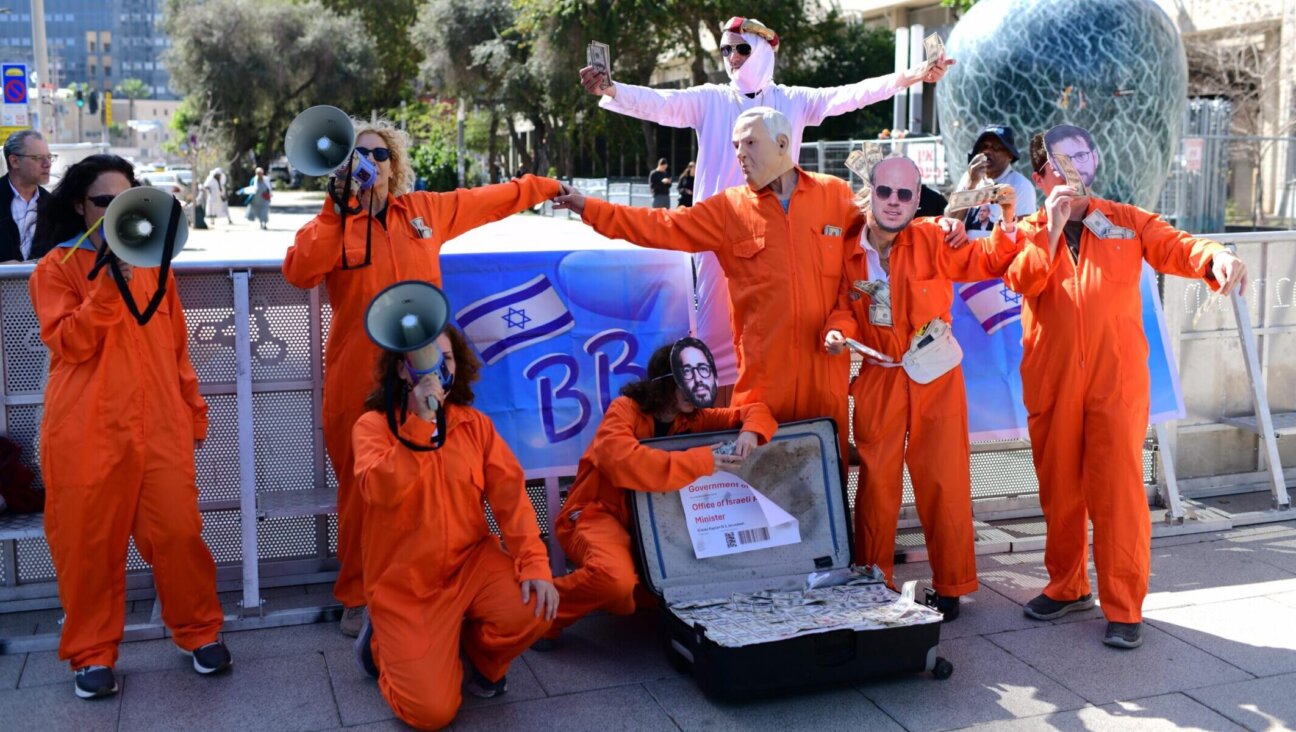Top Rabbi Admits Errors In Handling Lanner Case
A revered Orthodox rabbi accused by critics of withholding information about convicted sex-abuser Rabbi Baruch Lanner apologized last week in front of hundreds of students at Yeshiva University for his “mistakes” and “blindspots.”
Rabbi Mordechai Willig, head of a prestigious post-rabbinical institute at Yeshiva University’s rabbinical seminary, addressed a packed religious study hall February 19 in Manhattan to “beg forgiveness” from Lanner’s alleged victims. Willig came under fire in recent weeks by alleged Lanner victims and their families for keeping from the public for more than a decade a ruling of a 1989 rabbinic tribunal that found Lanner guilty of abuse. Willig’s critics accused him and the two other members of the 1989 rabbinic tribunal, or beit din, of perpetuating the misconception that Lanner was innocent while Lanner continued to have contact with children.
“I regret any pain my actions, or inactions, caused,” Willig told some 400 students in his 45-minute speech. “Until very recently, I did not realize that what I insisted, and believed was true, was objectively untrue.”
In a statement issued on behalf of the 1989 rabbinic tribunal, Willig said, “we made errors in judgment and procedure that caused unnecessary pain and aggravation. We accept responsibility for those mistakes.”
Several alleged Lanner victims and their families said they were satisfied with, and even moved by, Willig’s apology. But some said Willig did not go far enough, and they protested Willig’s assertion that abuse be reported to Jewish authorities and only “at times” to secular authorities.
Observers, however, noted the significance of the publicity-shy rabbi admitting his mistakes to the future rabbis of the Orthodox community regarding so controversial a subject. It is especially momentous, said some at Y.U., at a time when critics claim the school’s spiritual leaders are increasingly seen as flawless and divinely guided, a sign, critics say, of a rightward shift at Modern Orthodoxy’s flagship institution.
In his statement, Willig said: “Perhaps my experience will assist you, my talmidim [students], especially those of you who will become rabbanim, to try to eliminate the blind spot of self-denial.”
“Rabbi Willig’s apology has the educational value of teaching students that great people make mistakes, acknowledge them and grow from them,” said Rabbi Yosef Blau, who served on the 1989 rabbinic tribunal with Willig but has since become a vocal opponent of Lanner. “It’s certainly a statement of responsible leadership that doesn’t claim infallibility, which some have accused [Y.U.] of moving in the direction of,” said Blau, who is a counselor to students at Y.U.’s rabbinical seminary.
Lanner, a former leader of the Orthodox Union’s National Conference of Synagogue Youth, was convicted in June 2002 of sexually abusing two teenage girls during the 1990s, while he was their principal at Hillel Yeshiva high school in Ocean Township, N.J. Lanner was sentenced to seven years in prison by a Monmouth County court but is out on bail pending an appeal.
A report prepared in 2000 by a special commission appointed to investigate the O.U.’s role in the Lanner affair stated that Lanner had sexually abused women and teenage girls and physically abused boys and girls while he was a leader at NCSY. The report also cited the failure of members of the O.U. and NCSY leadership to take effective action, allowing Lanner’s conduct to “continue unchecked for many years.”
The commission was chaired by Richard Joel, international director and president of Hillel, who will succeed Rabbi Norman Lamm as president of Y.U. and its rabbinical seminary in June.
“What [Willig] did was terrific,” said Elie Hiller of West Orange, N.J., an alleged Lanner victim whose public accusations about Lanner’s behavior sparked the 1989 rabbinic tribunal. “Rabbi Willig clearly articulated that child safety precedes all other concerns whether they be halachic or otherwise,” said Hiller, whom Willig named in his apology as the primary victim of Willig’s “sin of the soul.”
But some family members of alleged Lanner victims were less than satisfied with Willig’s apology.
“I see no reason to put Willig on a pedestal and offer him absolution just because he figured out at this late date if he wants a future he better speak up,” said Laurie Kurs of East Windsor, N.J., whose son was allegedly abused by Lanner when he was a student at Hillel Yeshiva. Kurs told the Forward it is too late for Willig to apologize, but “not too late to clear up mistakes. He needs to call up people who are victims and call the court and say Lanner” was not exonerated by the beit din.
But other critics of Lanner said Willig’s motives should not be questioned and that although not perfect, Willig’s statement was revolutionary.
“Was it everything it should have been?” asked Rabbi Eliyahu Teitz, associate dean of the Jewish Educational Center school system in Elizabeth, N.J. “No. The comment about reporting to Jewish authorities hurts. Deeply. But there was an admission of movement on [Willig’s] part. Of acknowledging his personal mistakes,” Teitz wrote in an e-mail. Teitz is a member of the Parental Oversight Committee of the Etz Chaim region of NCSY in New Jersey, a group formed in response to the Lanner affair.
Another member of the parental oversight committee, Murray Sragow, praised Willig’s speech but added that the community, and particularly the Y.U.’s rabbinical seminary, should take follow-up steps to ensure Willig’s message is not lost. Sragow said the seminary should instate sensitivity training courses on sexual abuse.
The dean of seminary, Rabbi Zevulun Charlop, said the rabbinical school offers courses and mandatory lectures that tackle abuse detection and intervention. “We continue to review and update our rabbinic training program in all subjects, including sexual abuse,” Charlop added.
Willig said in his speech that after the “primary goal” of protecting children, his next goal is to “restore shalom in our yeshiva and beyond.”
Several observers said the remark pointed to rifts between Willig’s students and supporters and those who spoke out against Lanner, such as Blau.
Willig did not return phone calls seeking comment.
The Forward is free to read, but it isn’t free to produce

I hope you appreciated this article. Before you go, I’d like to ask you to please support the Forward.
Now more than ever, American Jews need independent news they can trust, with reporting driven by truth, not ideology. We serve you, not any ideological agenda.
At a time when other newsrooms are closing or cutting back, the Forward has removed its paywall and invested additional resources to report on the ground from Israel and around the U.S. on the impact of the war, rising antisemitism and polarized discourse.
This is a great time to support independent Jewish journalism you rely on. Make a Passover gift today!
— Rachel Fishman Feddersen, Publisher and CEO
Most Popular
- 1

Opinion My Jewish moms group ousted me because I work for J Street. Is this what communal life has come to?
- 2
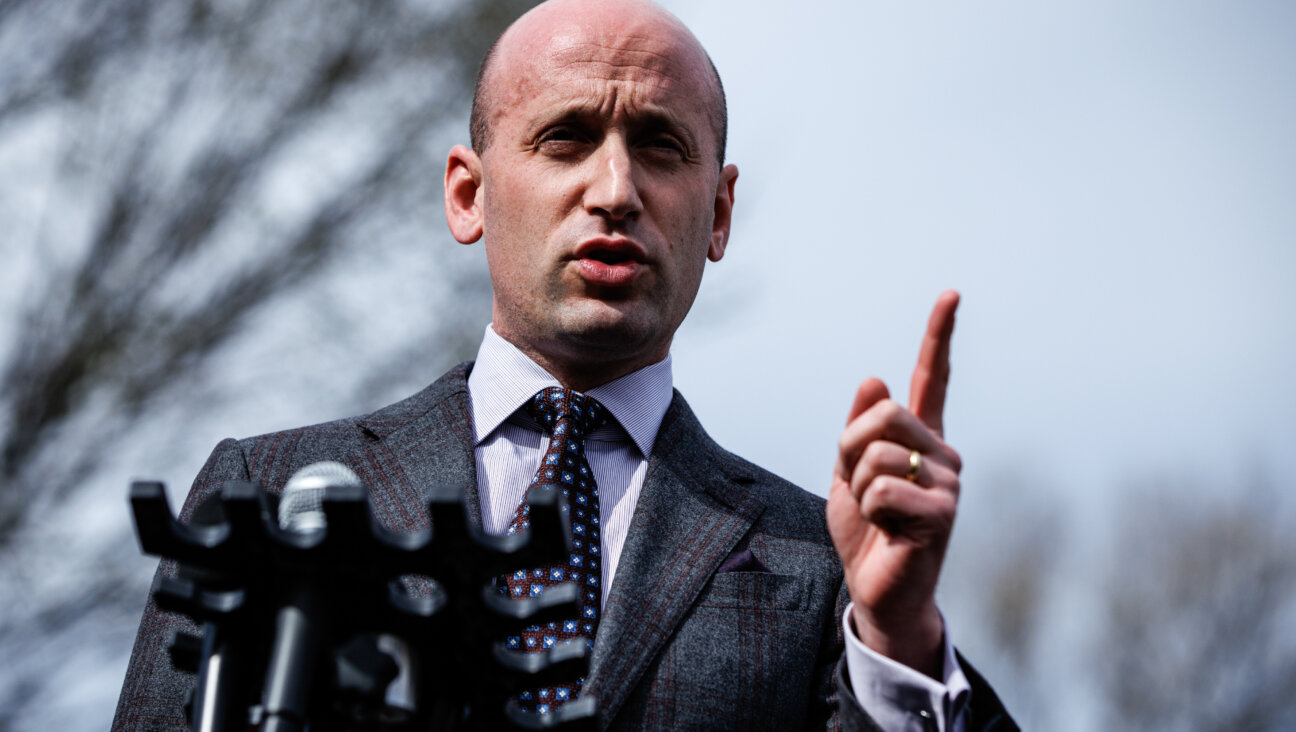
Opinion Stephen Miller’s cavalier cruelty misses the whole point of Passover
- 3

Opinion Passover teaches us why Jews should stand with Mahmoud Khalil
- 4
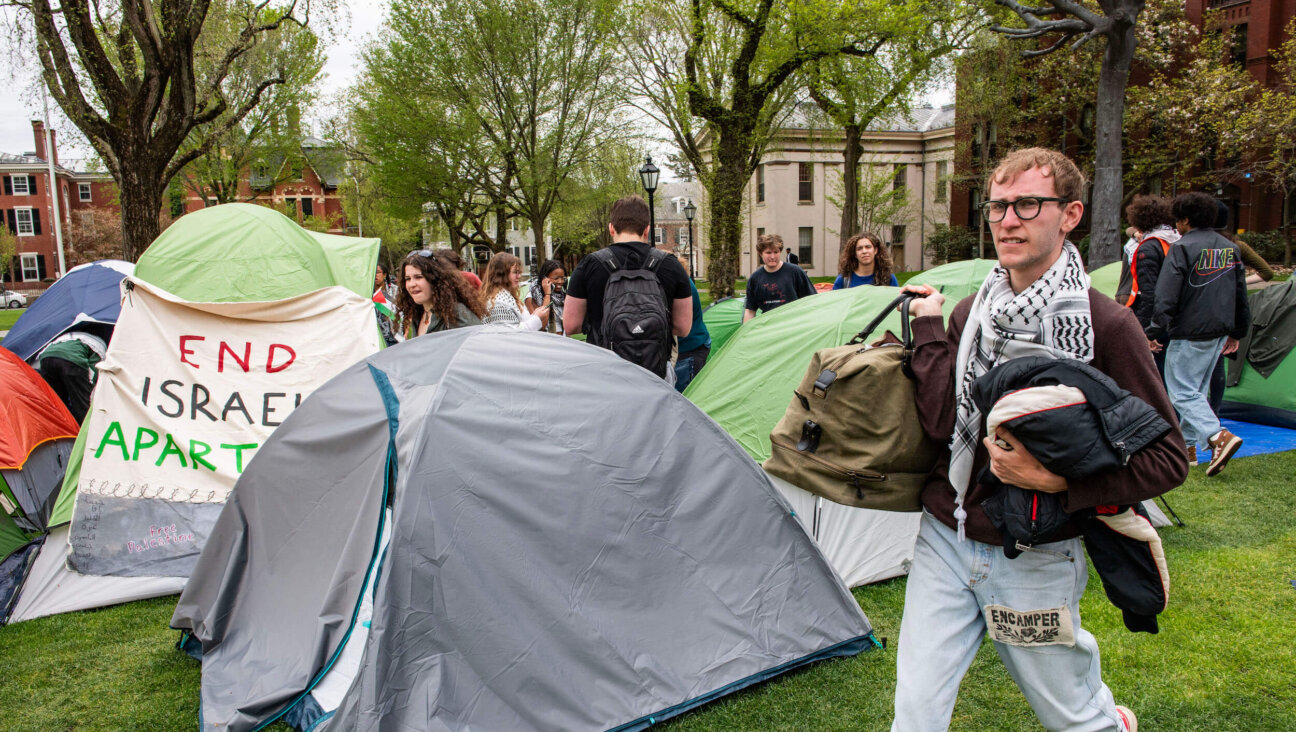
Opinion Pro-Palestinian protests enriched Jewish life on my campus. Trump’s actions will do the opposite.
In Case You Missed It
-
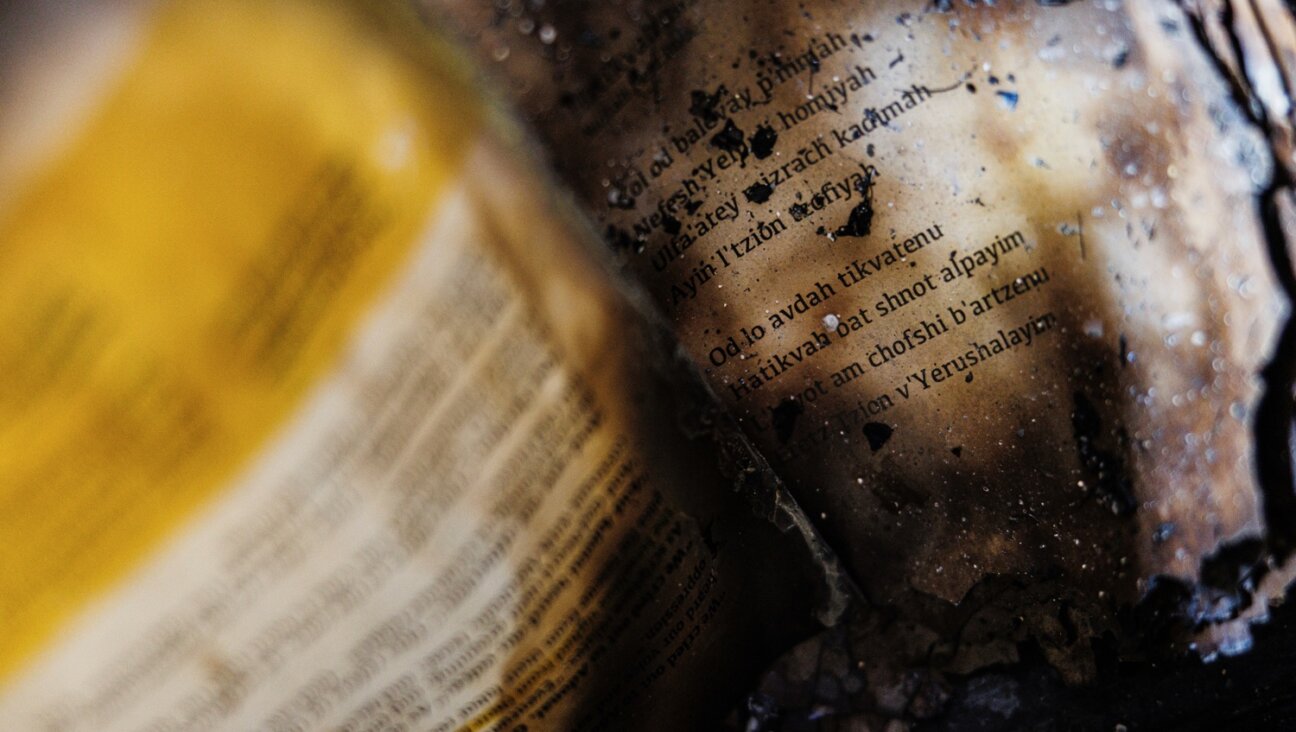
Fast Forward Hours after Passover Seder, arsonist targets Gov. Josh Shapiro’s home
-
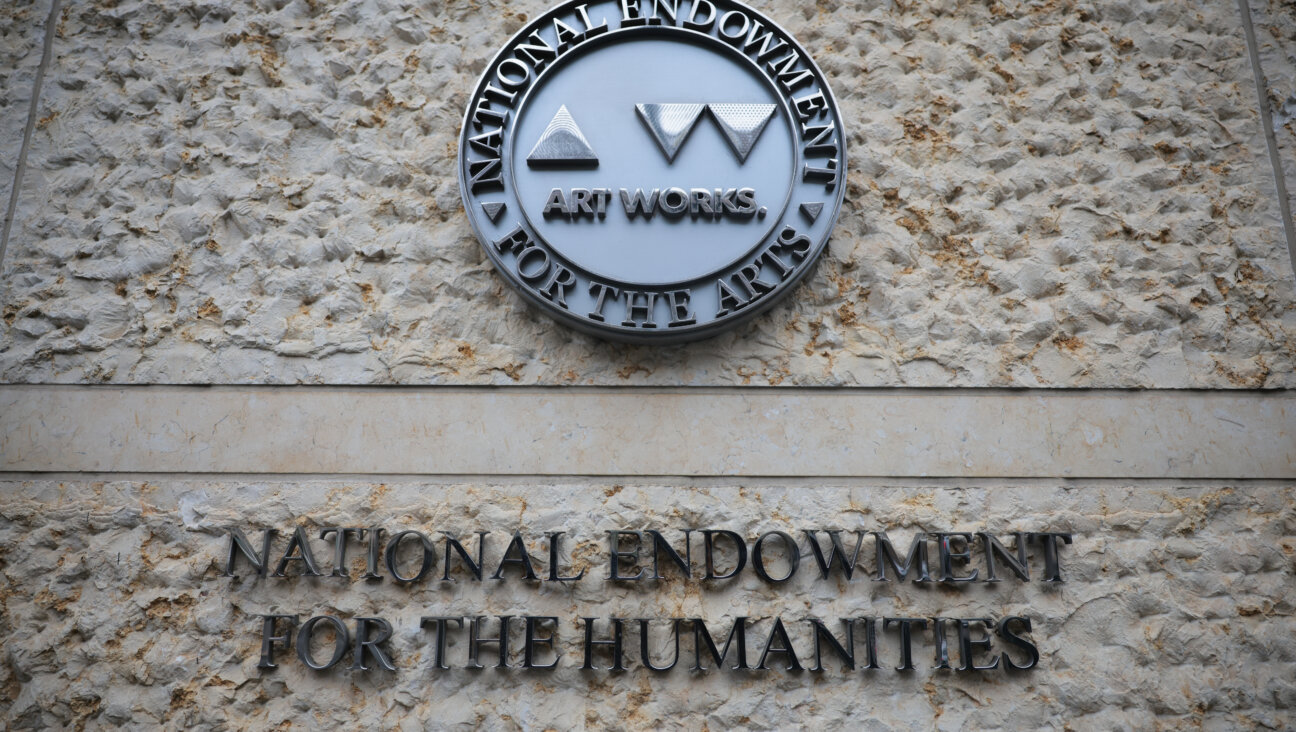
Culture Jews thought Trump wanted to fight antisemitism. Why did he cut all of their grants?
-

Opinion Trump’s followers see a savior, but Jewish historians know a false messiah when they see one
-
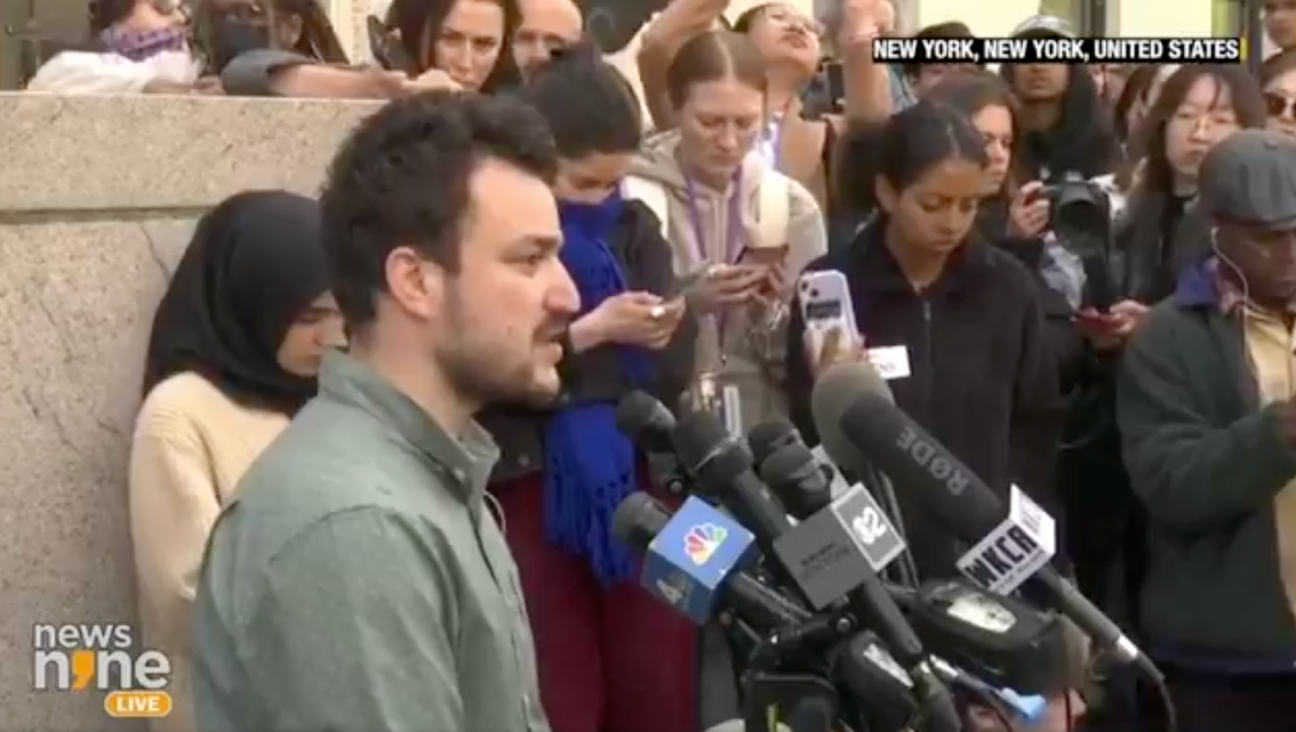
Fast Forward Trump administration can deport Mahmoud Khalil for undermining U.S. foreign policy on antisemitism, judge rules
-
Shop the Forward Store
100% of profits support our journalism
Republish This Story
Please read before republishing
We’re happy to make this story available to republish for free, unless it originated with JTA, Haaretz or another publication (as indicated on the article) and as long as you follow our guidelines.
You must comply with the following:
- Credit the Forward
- Retain our pixel
- Preserve our canonical link in Google search
- Add a noindex tag in Google search
See our full guidelines for more information, and this guide for detail about canonical URLs.
To republish, copy the HTML by clicking on the yellow button to the right; it includes our tracking pixel, all paragraph styles and hyperlinks, the author byline and credit to the Forward. It does not include images; to avoid copyright violations, you must add them manually, following our guidelines. Please email us at [email protected], subject line “republish,” with any questions or to let us know what stories you’re picking up.











